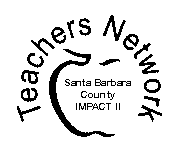The TeachNet Project sponsored with major funding by the AT&T Foundation,
seeks to improve student achievement by providing training, grants, networking and resource sharing to teachers at seven of the Teachers Network affiliates.


www.qad.com
A Drug Free Me
A Drug Free Me
How it works:
A
Drug-Free Me! is a comprehensive unit in which junior high
students are provided with the tools and fact-finding
opportunities to make wise choices regarding drug,
alcohol, and tobacco use. Students will learn techniques for
effective decision-making and, in their cooperative groups, make
decisions about typical junior high age situations. Students
will also learn the different ways in which we can say "no"
(passive, aggressive, assertive). They will reflect upon the
most effective ways to say "no" in various situations. Students
will also be given the opportunity to work in cooperative
groups to: research assigned alcohol/tobacco/drug topics;
prepare presentations using their choice of media; and
demonstrate their expertise for the class. Finally, in their
cooperative groups, students will practice using the skills they
have developed in creating their own demonstration of a typical
situation in which students would need to utilize these newly
developed skills.
Assessment:
Individual lessons are assigned by completion of activities. Rubrics have been designed, and are linked to the unit, for presentation products and oral presentations. Points are designated for completion of outlines and response forms.
Standards:
This unit addresses California Health Standards in which they will practice behaviors that reduce the risk of becoming involved in potentially dangerous situations and react to such situations in ways that help to protect their health. Students will: 1) use thinking and decision-making skills; 2) use interpersonal and other communication skills such as assertiveness, and refusal to avoid the use of alcohol, tobacco, and other drugs; and 3) distinguish between helpful and harmful substances in addition to having resources to assist then in their selection.
Estimated Number of Class Periods:
This unit is fairly flexible in time. It can be completed in nine to fifteen fifty-minute lessons depending upon the depth in which the teacher wishes the students to research. It is recommended the drug research component of the unit be at least two or three lessons. Presentation preparation is also flexible, but allowing more time will result in student presentations that are more comprehensive and creative.
What
you need:
This unit can be adapted for a variety of classroom situations. All students may have Internet- accessible computers in which to search those sites listed in the Web Resources Section of this unit. If wired computers are limited, teacher may assign/have students self-select a "Research Specialist" from each cooperative group. In situations where wired computers are limited to the teacher, information packets may be created by the teacher by downloading facts from the research sites. Student presentations may be as simple as a poster and as complex as PowerPoint displayed with an LCD projector depending upon the classroom situation.
The Students:
This unit is designed for seventh or eighth grade students. Students should be assigned to heterogeneous groups providing support for students with special needs.
Overall Value:
This is a great unit for teachers to meet health guidelines for drug education. Providing students with the opportunity to become "Drug Experts" reduces expectation of the teacher as an "expert", and there is considerable student comprehension and long-term understanding of the negative effects of alcohol, tobacco, and drug use. With the focus on "learn-by-doing", students become actively engaged in role-playing, decision-making, and refusal techniques.
Subject Area: Health
Starting Grade Level: Starting/Ending Grade Level: 7th or 8th Grade
Tips for the Teacher:
This lesson has been utilized for classes which include students from Resource, Learning Handicapped, and Immersion classes. When classes include students with special needs, groups must be assigned by the teacher in order to support all students' success.
Searching the web for drug information in
class can often result in interference from filtering software.
It is more efficient to provide students with an online hot-list
of resources which are appropriate and acceptable for drug
research. There is a proven list included in the Web Resources
section of the unit.
Ann D'Angelo Orton is a teacher at El Camino Junior High School, in the Santa Maria-Bonita School District, in Santa Maria, California. In her efforts to support beginning teachers, Ann has been a BTSA (California Beginning Teacher Mentor), and a CTAP (California Technology Mentor). Ann and her husband, Michael, authored an integrated technology unit posted with the Telemation Project. The unit, entitled "Eruptions," provides students with opportunities to form email buddies and communicate online with volcanologists. Ann is presently teaching health to seventh grade students in a class called, "Skills for Adolescence." You can reach her at Mikenannie@charter.net .
